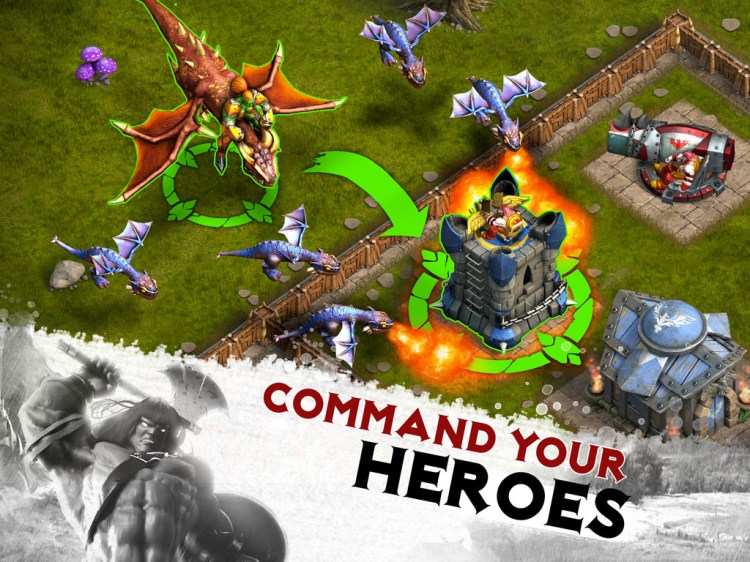Japanese mobile-gaming giant Gree has started to stagnate as the gaming on smartphones and tablets has matured, but now the publisher’s Western division is shaking some things up to help fuel a resurgence.
Gree has made a handful announcements that deal with how it will approach producing games and going after the markets in Western countries. The biggest news is that it has opened a new office in Berlin and acquired an Austrlian game developer called Twiitch (not the livestreaming company Twitch). But the company is also putting a new leadership team into place in the West and is hard-resetting its San Francisco office. Mobile gaming has grown into a $30 billion business, and Gree is working to take home as much of that as possible.
GamesBeat spoke with Gree chief operating officer Andrew Sheppard, who gave us some insight into what the company is trying to do. When it comes to Berlin, for example, the company is looking to expand its presence in Europe.
“It’ll be a small marketing sales office that will focus not just player acquisition but also live ops and localization,” said Sheppard. “We’ve hired a senior manager, Philipp Karstaedt, to oversee that team.”
And while the Berlin office will work on giving Gree a bigger footprint in Europe, Twiitch, the company’s new game developer, will start producing games and sharing technology with Gree’s other studio.
“Twiitch is a phenomenal team,” said Sheppard. “They recently published Heroes of War, which was done in partnership with Nexon. We’re bringing them into the fold due to their technical leadership.”
Heroes of War reached as high as No. 3 on the top-grossing charts in Canada and No. 18 in Australia, which are both strategically important markets. But beyond the game, Gree wants Twiitch for its proprietary free-to-play game development toolkit. Gree sees this as an opportunity to enable its studios to start rolling out better games at a more rapid development rate.
“That is 100 percent inline with where we want to move with this business,” said Sheppard.
Finally, Gree also has a new team running the show for its international business. This includes Karstaedt, who is overseeing the office in Germany. But it also includes Twiitch founders Shane Stevens and Steven Spagnolo.
“With Stevens and Spagnolo, we’re looking at guys with over 40 years of combined gaming experience,” said Shepaprd. “They are joining our new leadership team, and they will help help to oversee both current and new projects.”
Stevens and Spagnolo join vice president of marketing Shawn Conly as well as vice presidents of product Keith Kawahata, Jay Jodway, and Andy Neus.
Of course, all of this comes after Gree’s international division cut 30 percent of its jobs. This was mostly in its San Francisco office, where “several teams” saw significant cuts. Sheppard explained to GamesBeat the company chose to do this to bring its investment in the West into line with its overall strategy. Put more simply, Gree is trying to get leaner and more efficient to help it compete. Now, with a new office, a new studio, and new leaders, it’s time for Gree to see if can take on the GungHos and SuperCells of the world.
VentureBeat's mission is to be a digital town square for technical decision-makers to gain knowledge about transformative enterprise technology and transact. Learn More

